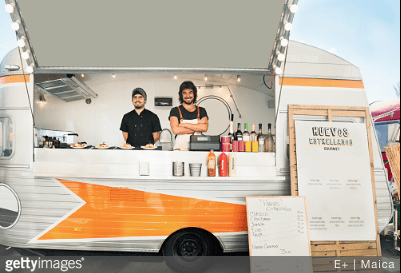By Idara Akpan
The entire park is immediately greeted by smells of sautéed onions and caramelized bacon. There is a loud muttering and mumbling of chefs running around the kitchen, grabbing Gruyere cheese and Dijon mustard, chopping onions and tossing them onto the grill.
The food here aligns with gourmet standards and is some of the best in Dallas. However, this food does not come from behind the counter of a 5-star restaurant; it comes from behind the counter of a food truck.
Kale and juicing might be food trends, but food trucks are here to stay. Dallas alone is home to more than 100 food trucks. They are found at locations like Klyde Warren Park, Lower Greenville, Deep Ellum and even SMU’s campus.
Students at SMU enjoy food trucks for their unique flavors and menu items.
“When you go to a restaurant, you know what you’re getting into. It’s the same menu over and over again,” senior Phillip Carter-Tracy said. “Food trucks you’re going to an assembly of different cuisines set before you to choose, smell and sort of embrace the food culture and the freaky fusions they try to whip out.”
The businesses have grown and stayed a constant trend for foodies in and around the city. Food truck drivers know that this not a trend that’s going to go anywhere soon.
“Food trucks have stayed because a lot of people are supporting local businesses and young individuals that can’t afford brick and motors right now, but are very dedicated to their craft,” Parrot Icce SP owner Steven Soussi said.
Soussi said that the convenience and mobility of foo trucks also contributes to their popularity.
“Brick and mortars are permanent,” Soussi said. “If you have a bad location, start your truck up move to a different location.”
YimYam owner Kham Phommahaxay said he came into the food truck industry in order to be his own boss and make the food he loves.
“Chefs decide they don’t want to work for someone else and want to cook their own food. That’s how I ended up here,” Phommahaxay said.
Compared to “brick and mortar” food establishments, food trucks have the advantage of a mobile reach.
“They can drive to their market instead of their market coming to them,” Carter-Tracy said.
According to a report from mobile-cusine.com, there are more than 4,130 food trucks driving through the food industry nationwide.
“We offer something different, as opposed to the restaurants,” Phommahaxay said.
Some may think that the restaurant industry might suffer severe competition with the rise of food trucks. According to mobile-cuisine.com, the restaurant industry is still growing across the U.S as the economy makes its way out of the 2008 recession.
“Dallas is very protective of their brick and mortar but collectively they bring out the best and give the customers more options,” Soussi said.














